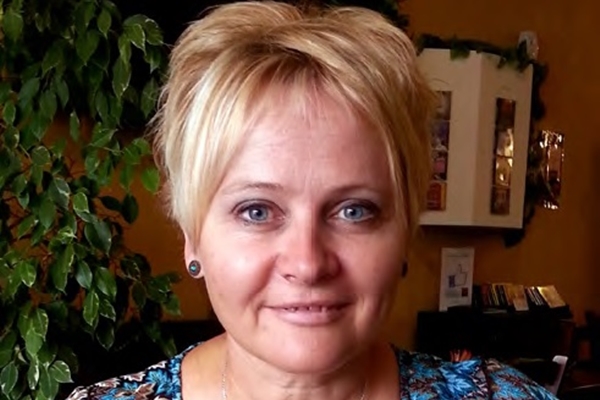Magdel
A different attitude to illness
Moving to Aotearoa was like shifting to “absolute paradise” for Magdel Hammond. When the 51-year-old left Namibia with her husband and two children, she never expected to find such a difference in the treatment of people with mental illness.
“I looked at how freely people spoke, and the difference in attitudes to mental health issues,” says Magdel, who has experience of depression and also lives with epilepsy.
“It’s just phenomenal. If you had to be ‘crazy’ anywhere in the world, this is the place to be.”
Move triggers depression
Magdel was born in South Africa, but moved to Namibia in 1994 with her family. Her husband – an expatriate– was able to work, but the rules in Namibia meant she could not.
"I’d qualified as a social worker, and then moved into HR management before we left South Africa. I suddenly become unemployed. It was a hard shift to make.”
She believes the move, which took her away from close friends, family and work, triggered her first major depressive episode.
“When we arrived there, it was desolate. I went from a big city like Johannesburg to a little village. I had two little ones under the age of two in a town where I knew no one. The isolation did it for me.”
Reading a pamphlet on depression in her doctor’s clinic was the push Magdel needed to finally get help. “It was scary, but a relief,” she says, of the diagnosis. “It was nice to be able to go, ‘I’m not just a bad mother or a bad wife, and I’m not just an attention-seeking waste of space. There is something I can do about it’.”
Her doctor referred her to a psychiatrist and through her husband’s medical insurance she was flown to South Africa once a month. While she says the visits kept her “sane”, the downside was being cast in the role of a “sick” person, and having to leave her children.
“Ultimately, it was the kids that changed things. I got onto an aeroplane one day and cried all the way to Cape Town. I realised then that I’d been an emotionally absent mother because I was so focused on myself.
“I knew they missed me when I went away, and that day on the aeroplane made me realise they wanted me there and needed me in their lives. I couldn’t play the ‘sick’ role anymore.”
Growth through experience
One of the first things Magdel discovered when she moved to New Zealand in 2002 was Kiwis are more willing to talk about mental illness – and be listened to.
“The public health systems are like chalk and cheese,” she says.
“People say going to a GP in South Africa is a waste of time because they don’t have time for things like depression.”
Those without medical insurance can find it difficult to get effective and affordable treatment, and people who disclose their mental illness are commonly discriminated against.
“I once got asked by a group of ladies at church in South Africa to speak to them about depression. I started a story about a woman and at the end I said, ‘that woman was me, but here I am today’.
“The change in attitude to the negative was significant. There were people that started avoiding me and one of the women stopped her child from coming to my house.”
More than a decade has passed since Magdel moved to New Zealand, and it’s a decision she doesn’t regret. Along the way, she says she’s learnt a lot, grown significantly as a person, and, as the general manager of peer support at Auckland-based service provider, Connect Supporting Recovery, also gained the confidence to disclose her mental illness to her employer.
“I learnt a new way of thinking that looks at people’s experiences, rather than seeing mental illness as an identity. That made such a difference to my own way of looking at myself as well.”

